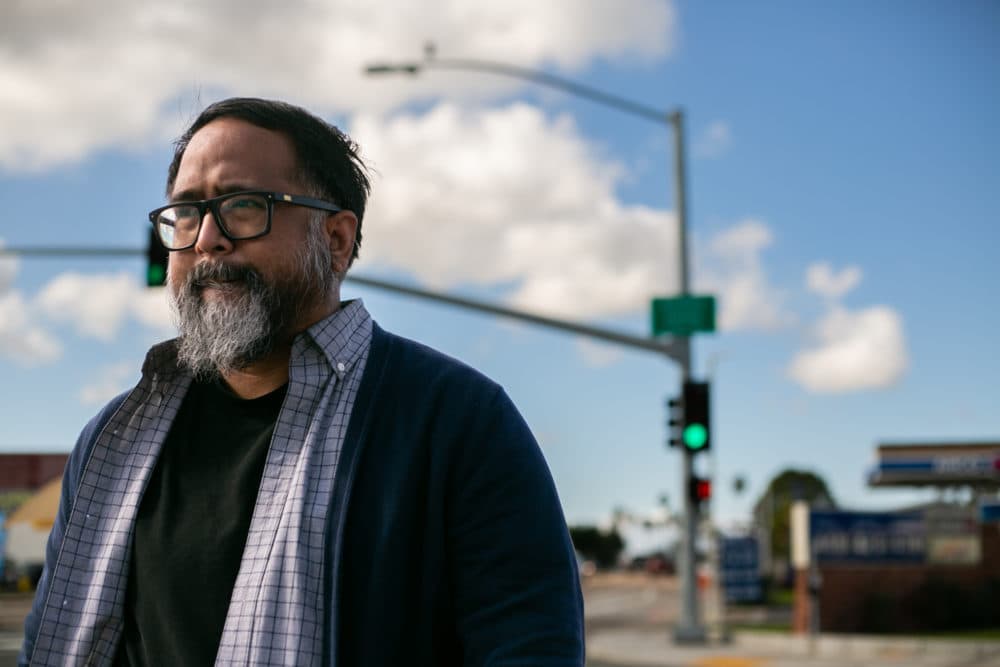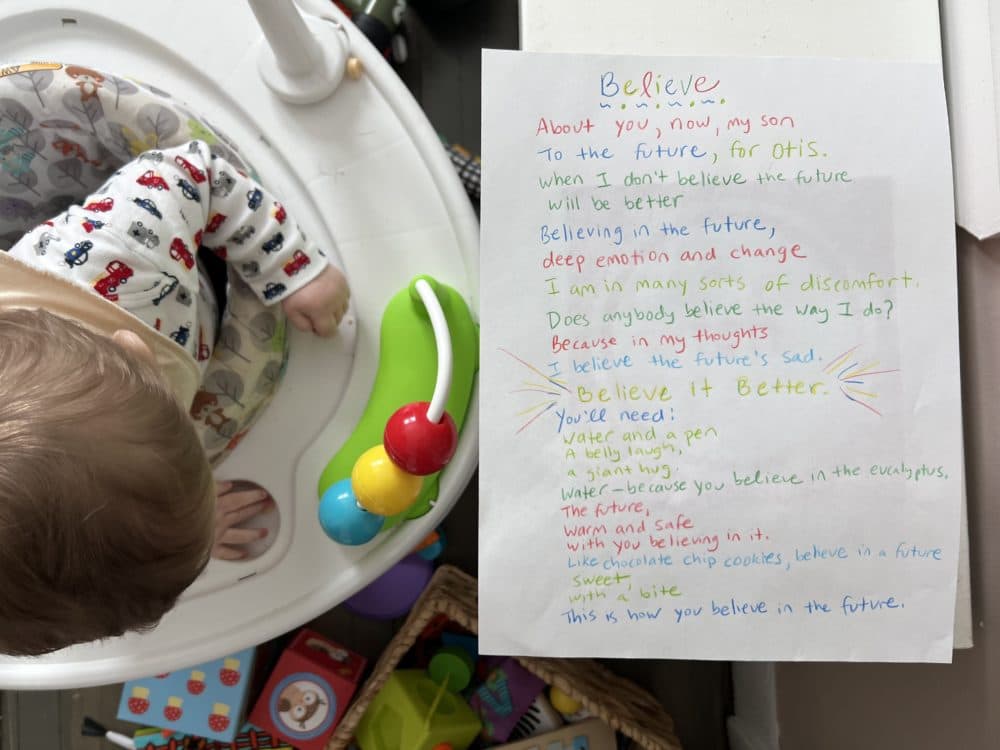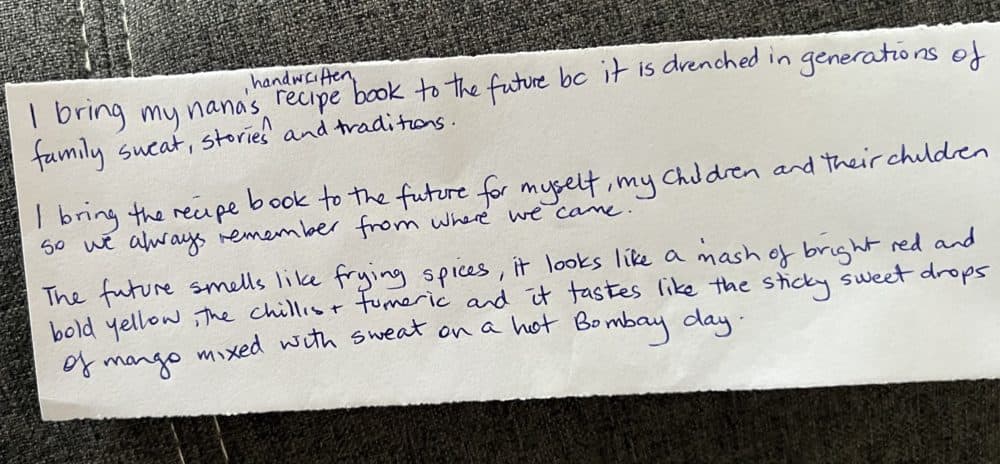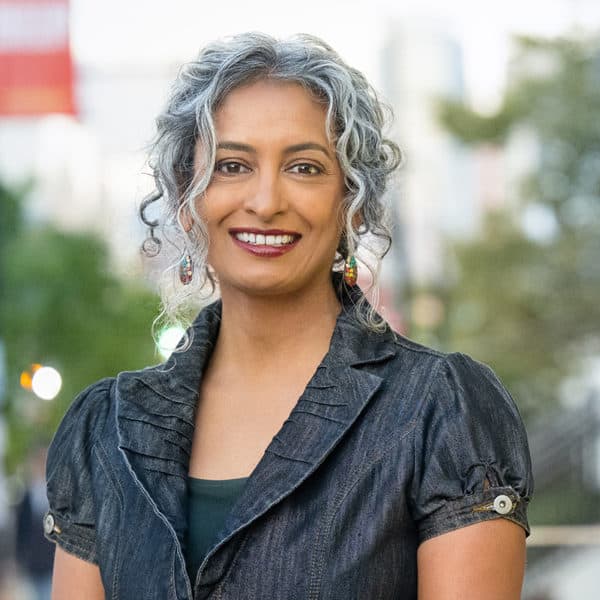Advertisement
San Diego’s poet laureate Jason Magabo Perez invites you to think toward the future

Editor's note: This segment was rebroadcasted on July 27, 2023. Find that audio here.
Growing up, Jason Magabo Perez says he felt alienated from formal academic English, but hip-hop lyrics opened his eyes to how he can use language to explore political ideas around dignity and social justice.
That was his gateway to poetry.
The son of Filipino immigrants now teaches ethnic studies at California State University, San Marcos. And, he's the new poet laureate of San Diego. The city appointed him to the two-year position in January. He’ll serve as an ambassador for the arts with a goal to work with communities to demystify poetry. And Perez has a book of poetry —'I ask about what falls away' — coming out in March.
“I'm open to holding space and co-creating space that's safe and caring and that's founded on mutual generosity and humility,” Perez says. “I'm just happy to share what I can with folks to create poetry and tell their own stories and recite their own lyrics, the things that are deep inside of them.”
Perez says when he first encountered poetry in his youth, it felt like it was something reserved for people with more resources.
Over time, he realized the multilingual conversations he heard at family parties were a kind of poetry, too.
“Listening to my pops tell a joke or listening to my mom's own repetitions within her Tagalog-inflected English — it sounded like music to me,” he says. “I think that poetry is about honoring and bringing together the many languages around you.”
Perez’ parents spoke several languages at home, including English, Ilocano — their primary mode of communication — and Tagalog.
He says he didn’t always fully understand what they were saying, but hearing them navigate various sounds helped him discover his own voice.
“I have a relationship with those sounds,” he says. “And I think the way that I treat English and think about English sort of is related to that.”
Advertisement
Homework assignment for the Here & Now audience from Jason Magabo Perez

This exercise invites you to think toward the future.
Supplies needed: pen/pencil, paper, scissors (unless you want to type and print out)
We're going to first develop a word/language bank that will provide the raw material for a poem. Be sure to write out each sentence on one line. Think fast. Write down whatever quickly comes to mind in response to the prompts below.
STEP 1: What 2 artifacts/objects would you bring into the future? Why? Write a complete sentence for each artifact/object: I bring ___ to the future because ___.
STEP 2: For whom would you bring these objects? I bring ___ to the future for ___.
STEP 3: What does the future look/smell/taste/feel/sound like? Be sure to imagine through all of the 5 senses...Use the template: The future looks like ___. The future smells like ___ etc.
STEP 4: Write down two lyrics from two of your favorite songs, or songs in your head. Quickly!
STEP 4: With your scissors cut each sentence/lyric into a strip. Basically, you should have strips of paper with sentences on them.
STEP 5: Cut each strip into thirds.
STEP 6: Rearrange the fragments of language either randomly or with intention. Think about what might be interesting to juxtapose. Keep arranging until you've used all of the fragments and they are in a new order.
STEP 7: Transcribe your poem onto a new sheet. Edit/revise/delete/add as needed for grammatical consistency. Don't stress over complete sentences.
STEP 8: What is the most vivid word from the song lyrics you wrote down? Replace every verb in your poem with that one word.
STEP 9: You should have poem feeling toward the future. What does the poem mean to you? What does it tell you?

Interview highlights
On what is being communicated in this work
“For me, the book ... is really about grief and reckoning with grief … and thinking about, in particular, our grief during the moment of the pandemic. And so this is when this is written. A grief as folks of color, as poets, as community folks, as members of our family. There's something really intimate and I would say critical and political about our grief.
“I'm trying to point to that and there [are] layers of feeling, layers of visions for the future, layers of thinking about the past. I think it's all in here. And there [are] different kinds of references that I was drawing upon as I was thinking about and witnessing a dear friend of mine bringing me groceries at the beginning of the pandemic and leaving that at the doorstep. And I think that I wanted to capture all that converged in a moment … in a sort of historical moment that we continue to be in.”
On the meaning of his poem 'I ask about what falls away'
“(This has the) same idea of grappling with grief. But also thinking about labor. But allowing my imagination to stretch beyond that. I will say that this poem is after the great Filipino labor organizer, Philip Vera Cruz, who has a poem titled ‘Profits Enslave the World.’
“I think that, me sort of thinking about the economy, thinking about capitalism and thinking about the toll that the pandemic and the capitalist response to the pandemic had taken on our communities and on the workers. I had to get into this space and think about, a layer of feelings — hope and sort of worry and all these things that I was processing.”
Excerpts from 'I ask about what falls away'
By Jason Magabo Perez
I ask about what falls away
I ask about what falls away.
I ask about where water sings.
Here is surplus of sun, ocean
of excess, remaindered song.
Whose hands wash this sky?
Who drains this sun against worry?
Whose mighty ache makes history?
This is where water drains,
where gardens grow against
worry, against the crisis of capital,
& capital knows nothing but the
veil hiding hand from profit. Here
is leftover rice. & the wild imaginary
of hunger. Here is a canal in
the crook of the earth. & here is
where water sings. & this, this
is water singing us elsewhere.
Notes: This poem appears in the author's forthcoming book, 'I ask about what falls away.' An earlier version of this poem appeared in Profits Enslave the World: Philip Vera Cruz, the Manong Generation, and the Migrant Laborer Experience by Welga Archive/Bulosan Center for Filipinx Studies.
Dear Kasama
I draft this, dear kasama, against
fish-hooks of hope. I draft against
slow elimination. I draft from soft
interior of riot. I draft syllables of
known sadness, such knowing,
such evidence, such kitchen table
phenomenology of you reading this,
of this reading you—on a rainy
morning, I see you in a blue mask
& black hoodie delivering bags
of groceries at the doorstep. I draft
from collected stillness, restless ghosts
archived in my veins. Consider this
an intimate poetics of rage. Consider
this rage divine refusal. Let us talk
about such refusal. Let us talk about
such dysregulation of promise. Let
us talk about how much I miss you.
Notes: The phrase "fish-hooks of hope" is sampled from Aimé Césaire, Return to My Native Land, translated from the French by John Berger and Anna Bostock (Brooklyn NY: Archipelago Books, 2013), 9. This poem appears in the author's forthcoming book, 'I ask about what falls away.' An earlier version of this poem appeared in Kalfou: A Journal of Comparative and Relational Ethnic Studies.
Ashley Locke produced and edited this interview for broadcast with Gabe Bullard. Locke adapted it for the web.
This segment aired on February 8, 2023.

